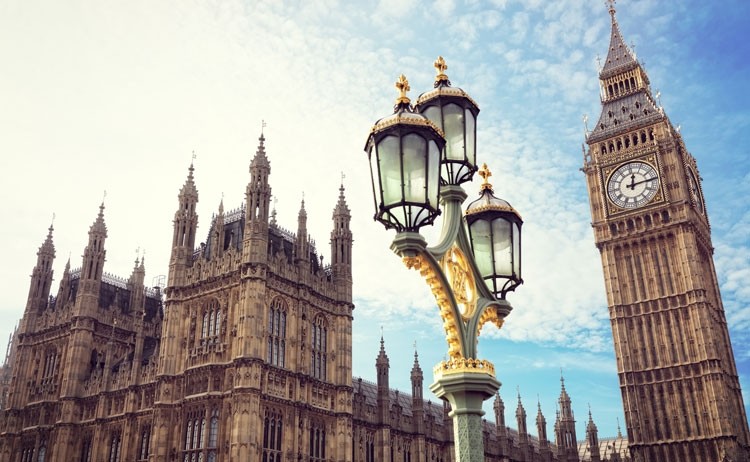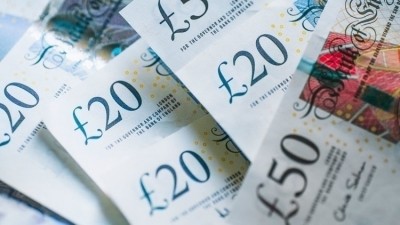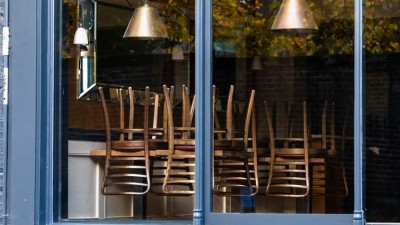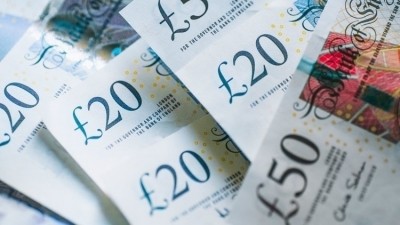Disappointment for hospitality as Sunak fails to offer fresh support for businesses in Spring Statement

Coming on a day when the annual rate of inflation rose to 6.2%, the Chancellor pledged to build 'a stronger, more secure economy', targeting measures to try combat the cost of living for people with a cut to fuel duty, a doubling of the Household Support Fund and a rise to the National Insurance income threshold.
However, beyond a small rise to the Employment Allowance, he failed to offer any meaningful support to businesses dealing with unprecedented and, by any measure, extreme cost inflation pressures.
Calls had long been growing for the reduced 12.5% rate of VAT for hospitality firms to be retained beyond April, when it is set to revert back to its pre-pandemic rate of 20%, but no such announcement was forthcoming; a move described as 'a massive missed opportunity' by trade body UKHospitality.
“This is a real setback for thousands of UK hospitality businesses still suffering the devastating effects of Covid, and facing a tidal wave of rising costs,” says Kate Nicholls, chief executive of UKHospitality.
“For many businesses, the removal of the lifeline of a lower rate of VAT might prove fatal. For a heavily, disproportionately taxed sector a return to 20% dashes the hopes that many businesses could begin to recoup some of the losses of the last two years.
“Operators in the sector – large and small – have several hurdles to clear on the road to recovery: huge accumulated debts; unprecedented rising costs for energy and raw goods; a chronic shortage of staff; and a fundamentally unfair and crippling business rates regime we’re desperate to see reformed.
“Locking in VAT at 12.5% would have given hospitality businesses a major boost, and helped the sector in its ambition to lead the UK back to post-Covid prosperity. As it is, thousands of jobs could be lost, the UK will remain uncompetitive versus international rivals, and already hard-pressed consumers in the midst of a cost-of-living crisis will see price rises in their favourite pubs, bars and restaurants, further fuelling inflation.”
Sunak's plan for a 'stronger economy'
Addressing MPs this afternoon (23 March), the Chancellor said forecasts from the Office for Budget Responsibility (OBR) showed the economy would grow by 3.8% this year, down from the 6% projection announced back in October.
Sunak noted that Russia's invasion of Ukraine presents a risk to the UK's economic recovery, but added it is still too early to know what its full impact will be.
With inflation rising and now forecast to average 7.4% this year, according to the OBR, the Chancellor announced that National Insurance starting thresholds will rise to £12,570 from July. Fuel duty, meanwhile, will be cut by 5p per litre until March 2023.
Additionally, he promised that the basic rate of income tax will be cut by 1p in the pound in 2024, by which time the OBR expects inflation to be back under control, debt falling sustainably and the economy growing.
Small businesses will benefit from a £1,000 increase to Employment Allowance, set to come into force in two weeks time, which the Treasury says will benefit around half a million SMEs (small and medium-sized enterprises).
Meanwhile, the one-year 50% cut in business rates for the hospitality and leisure sector up to a maximum of £110,000, announced by the Chancellor back in October, was confirmed to come into effect from next month.
Elsewhere, Sunak announced changes to research and development tax credits, saying the generosity of reliefs for business investment would be increased to boost UK productivity. The Chancellor said 'something is not working' with UK investment in productivity, adding that the Government will work with businesses and other stakeholders to consider cuts and reforms to best support future investment.
And with UK employers spending just half the European average on training their employees, the Chancellor said he will examine how the tax system - including the operation of the Apprenticeship Levy – can be used to encourage employers to invest in adult training.
Looking ahead, he also said that the Government would cut tax rates on business investment at the autumn Budget.
Noting the measures, Nicholls says that there were positive elements of the Chancellor’s statement.
“The reform of the Apprenticeship Levy, to focus on improving productivity, is something on which we have lobbied Government for five years or more and will be widely welcomed by our sector.
“Additionally, the generous increase in the NIC threshold for employees is a very positive move and will boost disposable income, although extending that measure to employers would help hospitality businesses to recruit and retain talent.”
Hospitality 'remains on a knife-edge'
Echoing Nicholls, Emma McClarkin, chief executive of the British Beer and Pub Association (BBPA) expressed disappointment at the Chancellor's decision not to extend the 12.5% rate of VAT for hospitality, warning that the sector 'remains on a knife-edge' as it emerges from Covid and adding that the coming months could be some of the hardest yet for businesses.
“The failure to act today represents a huge missed opportunity to help brewers and pubs in the face of sharp increases to the cost of living and doing business,” she says.
“The report we published last month set out the undeniable case for making the 12.5% rate of VAT permanent. The economic and societal benefits of making this change would be enormous and enable the tourism and hospitality sectors to truly act as an engine for the UK’s recovery as we look beyond the pandemic.
“We welcome the Chancellor’s announcement today to increase the Employment Allowance, the threshold for National Insurance contributions, the planned increase in the income tax threshold and the fuel duty cut. However, the fact remains that these will do little to help the bottom line for thousands of pubs and brewers around the country struggling with increasing overheads and concerned consumers.”
McClarkin adds that in the autumn Budget it is crucial that the punitive overall tax burden on the sector is addressed to reignite businesses with a long-term approach and vision for recovery.
“This means business rates reform to reduce the disproportionate burden on pubs and implementation of alcohol duty reform proposals that supports Britain’s brewers, pubs and drives consumers towards lower-strength products.”
Graeme Smith, managing director at financial advisory and global consulting firm AlixPartners, notes that the removal of VAT relief and the absence of other meaningful interventions by the Chancellor means that the last vestiges of Covid support are falling away.
“This is a significant moment for hospitality and leisure businesses,” he says.
“We are now entering a period when management teams will necessarily be required to understand their businesses at a forensic level and manage margins in real time, so as to best mitigate this pressure.
“Those businesses that have invested in this complex discipline will clearly have a huge competitive advantage. Understanding what levers to pull, when and to what extent will be critical as businesses seek to navigate their way through what will clearly be a testing time.”























